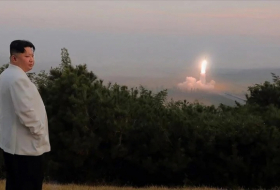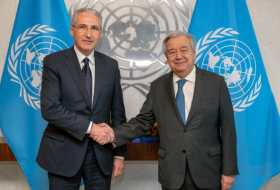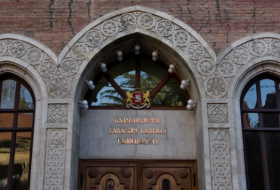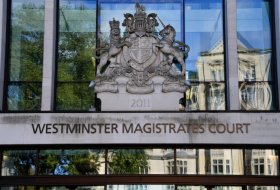One of the worst-hit areas was a Montreal suburb where more than 6,000 people were evacuated after a dyke burst on Sunday. A further 3,000 people were evacuated in other parts of Quebec, and in Ontario and New Brunswick, hundreds more are waiting out the floods in hotels and shelters.
“This year’s flooding is very extreme,” said Ursule Boyer-Villemaire, an associate professor at the Université du Québec à Montréal who specializes in disaster management and climate resilience planning.
Climate change means that catastrophic flooding will only become more common, but experts say the events of the past week highlight the fact that Canada has still not done enough to prepare for such disasters.
The current mass evacuations have forced Canadian politicians at every level to confront this dramatic evidence of climate change in a federal election year. Speaking on Sunday night, Justin Trudeau, the prime minister, suggested that using federal money to help relocate communities affected by flooding was a possibility. “Once we secure the situation through this spring flooding season, we will have to have significant reflections and conversations on how we move forward,” he said, according to the Canadian Press.
This is not the first time Quebec has seen large-scale flooding: in 2017, Quebec rivers reached similar levels, but the floods didn’t hit the heavily populated Ottawa-Gatineau region, and far fewer people were evacuated.
The fact that two so-called “hundred-year floods” occurred so close together has climate preparedness experts concerned.
Rapid temperature increases in spring and huge variation in the amount of precipitation, two factors in the flood, are related to climate change, said Laura Coristine, a biologist at the University of British Columbia.
But Canada has done little to prepare for flooding that is likely to become even more common as the planet continues to warm, she said. “Responding to disaster is going to be a lot more expensive than being proactive in vulnerable sites.”
Ontario’s premier Doug Ford, whose government has fought hard against the imposition of a country-wide carbon tax aimed at curbing emissions, toured flooded areas near the Ottawa river on Friday night. According to the Canadian Press, Ford didn’t explicitly mention climate change but did say “something is going on and we have to be conscious of it”.
Meanwhile, the leaders of Quebec and New Brunswick, the other affected provinces, are starting to talk about permanently relocating communities in flood-prone areas.
That’s not a simple thing to consider, said political scientist Daniel Henstra, an associate professor at the University of Waterloo who studies flooding in Canada: when a similar strategy was tried in Calgary after 2013 flooding, only 30% of homeowners in a high-risk flood area took the offered buyout so they could move.
Currently, Quebec is offering residents C$200,000 to move, but that may not even cover the mortgage for many.
There are some other options, Henstra said, such as building flood barriers to keep the water in the river. “These types of barriers are really expensive to install and maintain,” he said “and they cause environmental impacts downstream.” A more widely-adopted strategy, globally speaking, is just to plan for flooding and keep people from building in flood plains.
More extreme attempts to get them to move, such as mandating a buyout, could be politically damaging, but that might be what it takes to get everyone out of a flood-prone area, said Henstra. “These are the kind of tough decisions we’re facing,” he says, “and we’re just at the beginning of having those hard conversations.”
More about: #Canada
















































